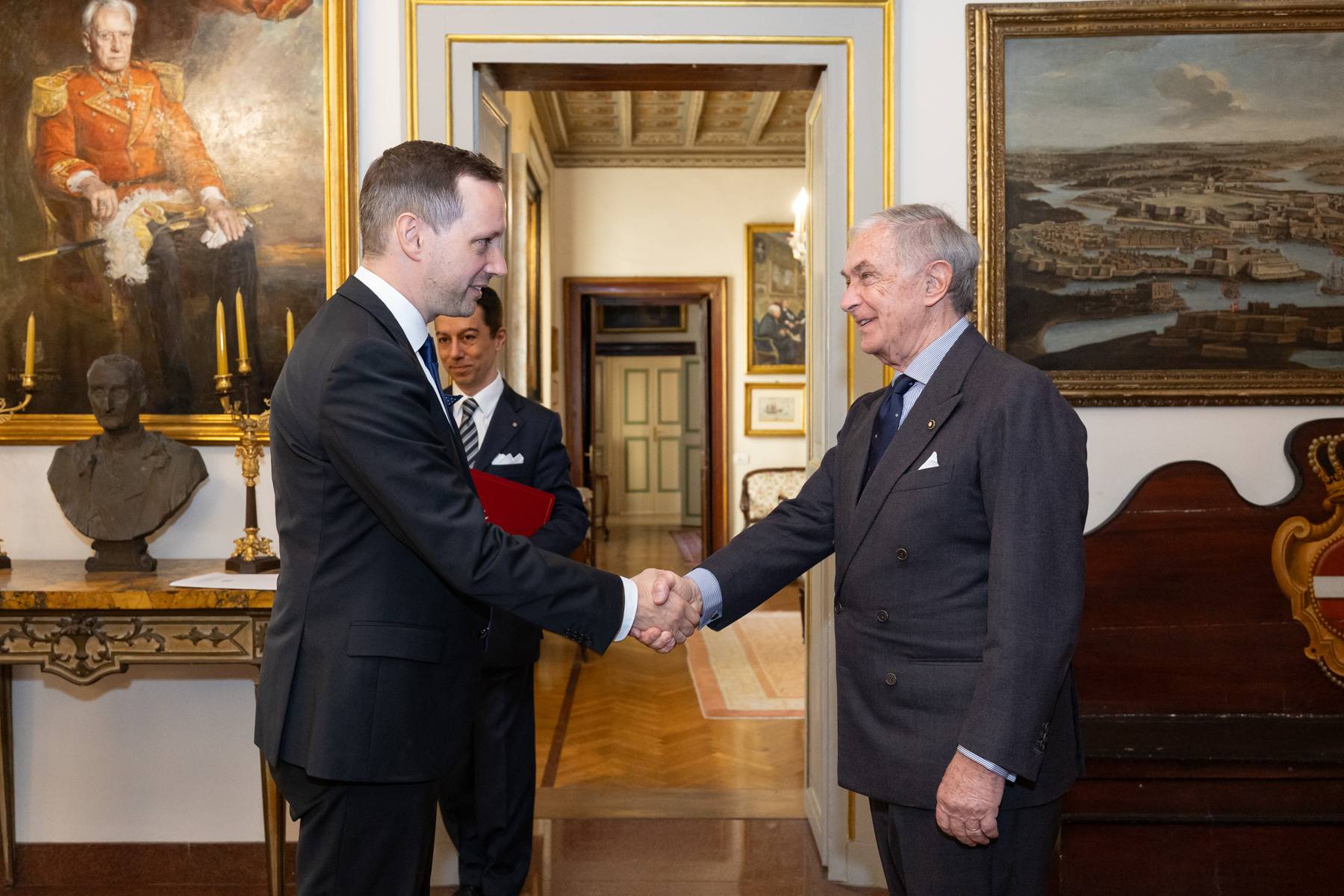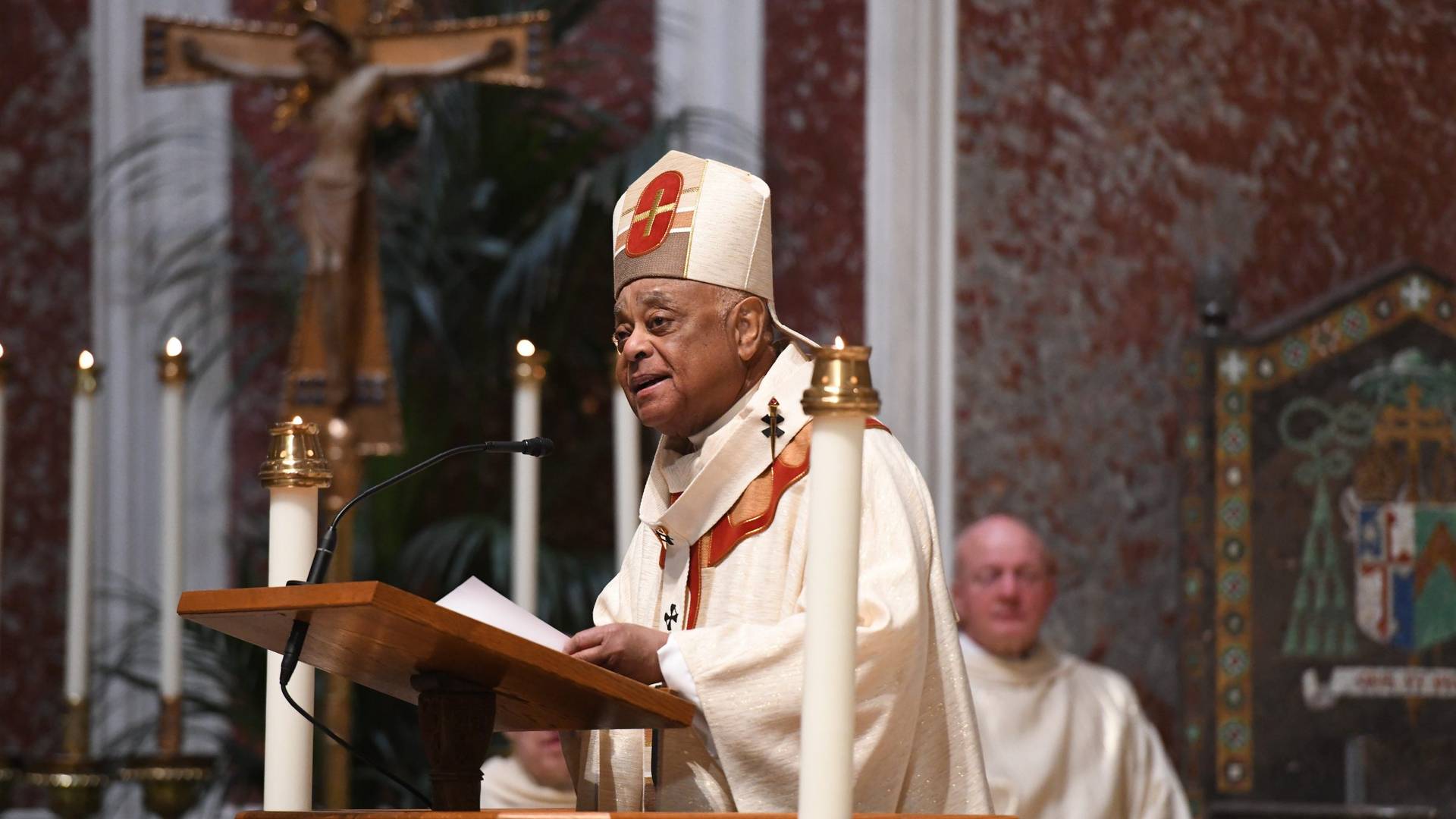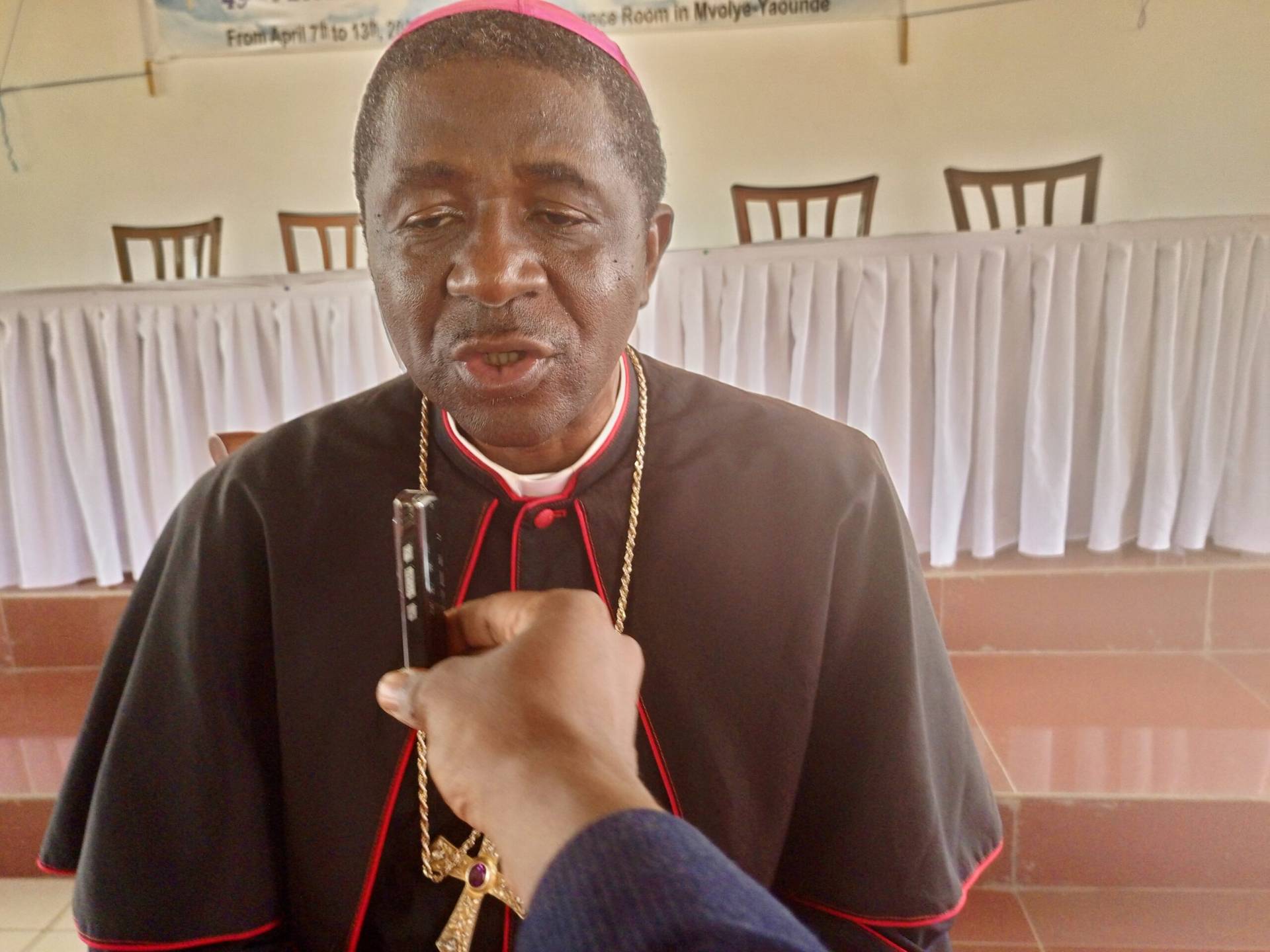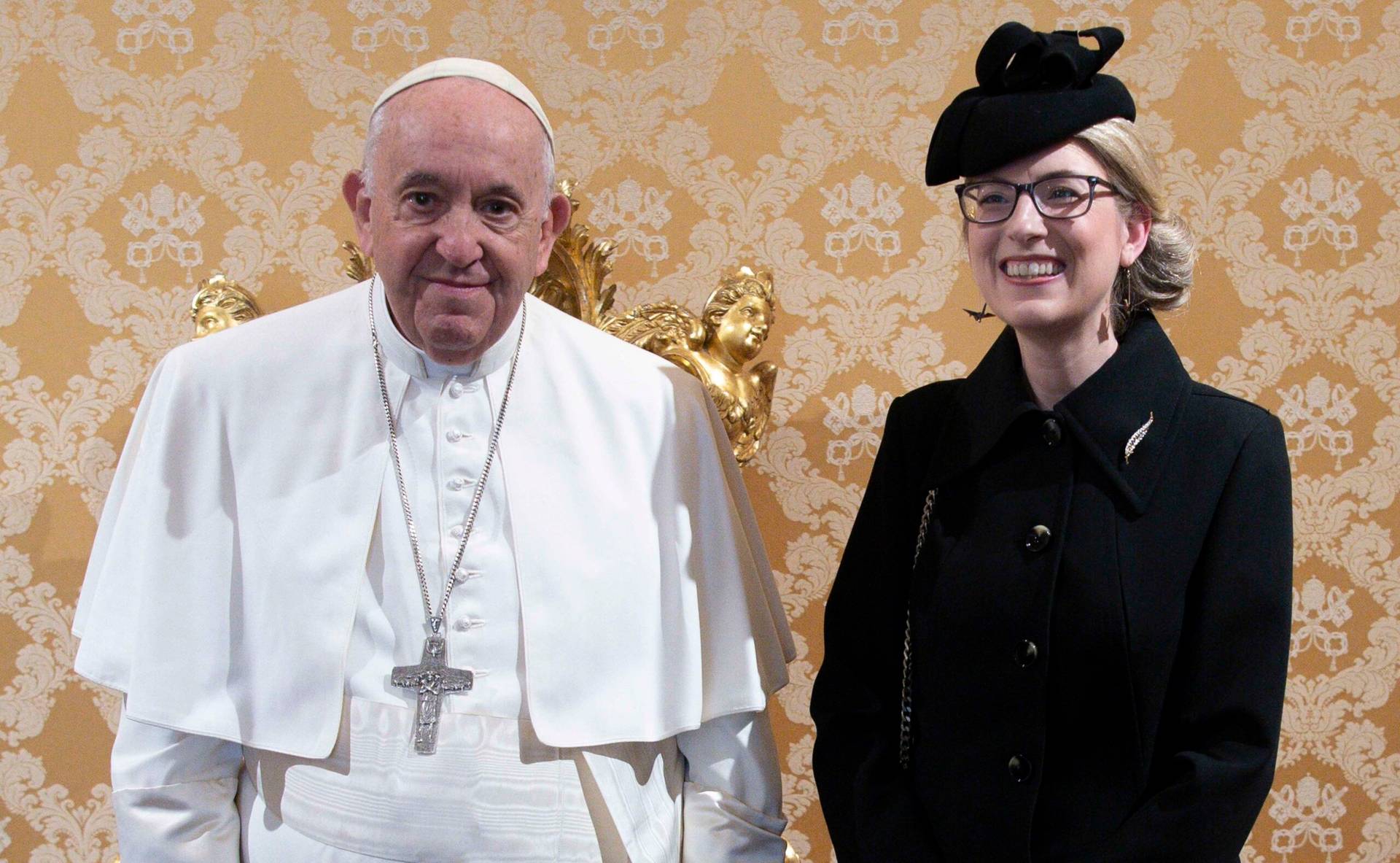ROME – One of Iraq’s most prominent Catholic leaders and entrepreneurs has voiced gratitude to U.S. President Donald Trump for the support his administration has given to persecuted Christians in the Middle East, saying that for many in the Middle East, it’s the first time they feel like someone is listening.
“This is the first administration we’ve seen that’s close to us,” Archbishop Bashar Warda, Chaldean archbishop of Erbil, told Crux over the phone from his residence in Ankawa, the Christian suburb of Erbil, Iraq.
Referring to aid promised to Iraqi Christians by U.S Vice President Mike Pence in June, Warda said that despite an initial delay, the funding has started to come in and is being allocated to different projects.
“We now have people on the ground from USAID to follow up with the churches and everyone affected by the ISIS genocide,” he said, using the acronym for the Unites States Agency for International Development.
According to Warda, the money is currently going toward the rebuilding of schools in both Batnaya and in Karamles. USAID is also offering workshops on how to be in touch with their personnel and they will soon announce other protects.
This is important, Warda said, “because many in our communities aren’t aware of how USAID programs are implemented, how to reach the agency and submit proposals. These are tangible results. We’re seeing it more than before.”
He voiced gratitude to the Trump administration and said the assistance given by the U.S. government is being noticed and felt by people on the ground.
“The Vice President’s office is following this [effort], and we’re in constant communication about what’s happening on the ground,” Warda said, yet cautioned that this communication must “go beyond words to actions, because the need is immense.”
Houses and infrastructure destroyed by ISIS are still the main priority in terms of rebuilding, allowing people to return to a normal life, rather than living in perpetual limbo while reconstruction efforts loom with no clear end in sight.
Security is also a prime concern, Warda said, stressing that there is a great need for “a unified vision for the area,” which is currently divided among different militias and political parties. “If we can show our people that things will be secure,” he said, “then there’s the possibility of building a future.”
In addition to rebuilding houses and infrastructure, trust and hope are also key, he said, noting how Iraqi Christians have long been “persecuted and forgotten” by the world, yet when they see concrete examples of support and friendship, “it affects them.”
“Our people need a big ally, someone to tell them you’re not forgotten and we’re watching closely what’s happening on the ground. They need a friend to support them, and we’re starting to see that now,” Warda said, saying he believes, “a new period is opening up, one we’re very happy to enter.”
Also hopeful for the future of Christianity in Iraq is Father Amanuel Adel Kloo, a Syriac-Catholic priest from Mosul who is currently the only native pastor to the city living there and working to restore its Christian presence.
Kloo was the last priest to flee Mosul after the ISIS-takeover in 2014, staying a full month under their rule before eventually escaping and making his way to Erbil, here he ran a refugee camp for displaced families.
Having returned to Mosul after its liberation in 2017, he is now focusing on ministering to the roughly 100 Christian families that have returned to the city, including Syriac and Chaldean Catholics, and Orthodox Christians.
The bulk of his time is spent on rebuilding Our Lady of the Annunciation Church, which was his parish before ISIS attacked
“Right now, I am rebuilding my church…it is not complete right now, but I am building it,” Kloo told Crux in a phone-interview from Mosul.
Since all churches in Mosul were destroyed by ISIS during their 3-year rule over the city, there are currently no Masses in the city, meaning Catholics who want to attend Mass currently have travel to surrounding villages, Kloo said, but voiced hope that “maybe next year” there will be a regular Mass schedule at his parish, which is about 6-7 months from completion.
In addition to his parish, Kloo also wants to build a dormitory for the nearly 1,000 Christian students who travel to the city daily to attend classes at the University of Mosul. Since many of them have to travel long distances, paying for daily transportation and navigating a web of checkpoints, having an overnight place to stay would help ease the burden and allow them to focus on their studies.
Though security was a major issue when Mosul was first liberated, with Many Christians afraid to return due to a lack of trust of the Muslim neighbors, Kloo said the situation in Mosul “is good, it’s safe. Mosul is safe now. The situation is good all the time.”
He voiced hope that more Christians will return to the city in the future, and said that despite initial tensions or a general lack of trust on some levels, “the relationship between Muslims and Christians is good.”
In fact, Kloo said all of the workers currently overseeing the rebuilding of his parish are Muslims, and “I don’t have any problems with Muslims building my church.”
Speaking how significant the current Christmas season is to Christians in the Middle East, Warda said the season serves as a reminder of the plight of the Holy Family, who was forced to flee their home in Nazareth and go to Egypt to avoid persecution.
“It’s a time to think about all the displaced people in the world, including those of Nineveh Plains, and to pray for them,” he said.
Warda also noted how Pope Francis last week met with Nadia Murad, a Yazidi woman who won the Nobel Peace Prize for her advocacy on behalf of persecuted minorities in Iraq after escaping ISIS captivity, where she was essentially a sex slave for ISIS soldiers.
Voicing gratitude for the meeting, Warda said the fact that the Nobel Prize was given to someone from a community that has been “tortured” in so many ways is an important and praiseworthy sign, yet he also cautioned that “we need to go beyond prizes to real concrete help.”
“The Yazidis actually had it even worse than we did,” since the Christians have support from the Catholic Church ad groups such as the Knights of Columbus and Aid to the Church in Need, he said, noting that “without the help of those Church groups, we wouldn’t already have 8,000 families back in their homes.”
Many Yazidis are still in camps waiting to go back home, he said, adding that “they need help right now, and we’ve got to find ways to cut through the red tape of bureaucratic procedures.”
“It’s important to have transparency and accountability in how money is used, but there has to be a way to get things moving more quickly,” he said, quipping, “can’t we just sit down together and find ways to get this done?”


















